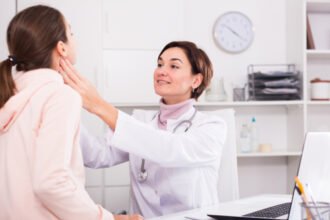
Patients meeting one another at an in-person event produced by Patient Power for the Patient Empowerment Network and City of Hope near Los Angeles

Patients meeting one another at an in-person event produced by Patient Power for the Patient Empowerment Network and City of Hope near Los Angeles
As you know, I beat the drum for what’s becoming a “patient empowerment movement,” especially among cancer patients. And more and more of us are living longer and want to live better. You would think the medical industry would want to support our efforts to be informed and be in control and do it on a sustained basis. But, unfortunately, they haven’t caught up with our almost daily thirst for new information and expectations that our questions will be answered.
It is not that the pharmaceutical industry–to take one part of the healthcare community–doesn’t want to help. I think there are many Pharma people who do. But their tradition is to support medical education with a tiny fraction of funds going to educate patients. Trying to get that to change is like turning a battleship. Part of the problem is that the decision makers are often very removed from patients. There are committees of doctors and lawyers. They are reluctant to rock the boat. Yet we “powerful patients” want to do exactly that: rock the boat. We want to be more in control of our journey in fighting an illness. We want a steady flow of credible information. We want news as it breaks, we want to understand the science and research that may affect us and we want access to experts.
What about government? Shouldn’t they support us being more in control so we can take a greater role in our care and self-care? Maybe, but in an era of slashed budgets this would be a low, low priority.
What about hospitals and clinics, that’s where the smart doctors are? That’s where successfully treated patients have been. With a few exceptions, including our top-notch partners – many hospitals trot out the doctors and patient stories only for marketing and fundraising. Diabetes education efforts may be an exception and its made a tremendous difference. But it hasn’t caught on in other areas like “chronic cancer.”
So what can we do? I think it’s a little like writing your congressman. Tell your doctor and their clinic and hospital you want educational events, videos, and online Q&A. Go on drug company websites and Facebook pages, especially for drugs you take, and urge them to support ongoing disease education – ideally programs they support but do not control. Tell advocacy groups for your condition to step up education efforts year round and partner with other groups so more can be done synergistically rather than competitively.
These days it is not about anyone’s “brand.” It is simply about helping patients do better through knowledge. Companies, hospitals, doctors, and advocacy groups that are leaders will “win” by doing what’s right for patients by giving us the power, through ongoing education and interactive discussion, to help us be full partners in our care. They need to allocate or re-allocate resources and contribute much more funds. Today it is less about educating doctors and more about educating patients because it’s the right thing to do and because we have influence and a voice, too.
At Patient Power we’ve been doing our part. I hope others will support that and join in.
I’d love to hear your comments on this.







